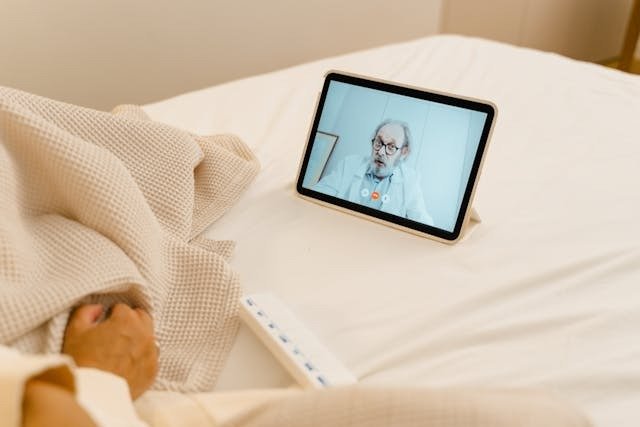As healthcare evolves, many medical practices shift towards virtual solutions to enhance efficiency and patient satisfaction. The virtual medical receptionist is critical to this transition, who acts as the patient’s initial point of contact and plays a vital role in the overall patient experience. Here are the top qualities to look for in a virtual medical receptionist.
Excellent Communication Skills
A virtual medical receptionist or a virtual receptionist healthcare must possess outstanding verbal and written communication skills. They should be adept at conveying information clearly and effectively, whether it involves answering inquiries, providing instructions, or handling sensitive patient data. A warm, approachable tone can significantly enhance patient interactions, making them feel valued and understood.
Strong Organizational Abilities
Virtual receptionists are often responsible for managing multiple tasks simultaneously, such as scheduling appointments, updating patient records, and coordinating communications between patients and healthcare providers. Exceptional organizational skills are essential to ensure that all of these responsibilities are noticed and that the office operations run smoothly.
Comfort with Technology
Familiarity with various software tools and technologies is crucial in a digital world. A virtual receptionist should be comfortable using electronic health records (EHR) systems, scheduling software, and communication platforms. This technical proficiency enables them to perform their duties efficiently and adapt quickly to new systems or updates.
Empathy and Patient-Centric Mindset
Getting medical care can frequently lead to worry for many patients. A virtual medical receptionist with a patient-centric approach can significantly impact patient experience. They should be empathetic, understanding, and ready to assist patients facing various issues, from scheduling conflicts to medical concerns. This supportive attitude creates a welcoming environment and fosters trust between patients and the practice.
Attention to Detail
In the medical field, details matter. A single mistake in scheduling or patient information can lead to significant consequences. A virtual receptionist must have a keen eye for detail, ensuring that all communications, records, and appointments are accurately handled. This meticulous approach enhances operational efficiency and minimizes the risk of errors that could affect patient care.
Problem-Solving Skills
Every day can bring unique challenges in a medical setting. A virtual medical receptionist should possess strong problem-solving skills, enabling them to think critically and resolve issues swiftly. Whether addressing scheduling conflicts, managing patient concerns, or troubleshooting technology problems, a proactive and solutions-oriented mindset is essential.
Confidentiality and Professionalism
Handling sensitive patient information is integral to a virtual receptionist’s role. They have to uphold confidentiality and moral principles in every interaction. Understanding the importance of HIPAA regulations and applying them diligently ensures that patient data is safeguarded.
Flexibility and Adaptability
The healthcare environment is dynamic, and virtual receptionists must be adaptable to change. A flexible attitude is crucial for maintaining seamless operations, whether it involves adjusting schedules, accommodating last-minute requests, or learning new technologies. The capacity to change course swiftly in reaction to new challenges without losing focus on patient needs is a valuable asset.
Multitasking Capability
Virtual medical receptionists often manage multiple responsibilities at once, from answering phone calls to managing appointment schedules and responding to emails. Their strong multitasking capabilities allow them to handle these various tasks efficiently, reducing patient wait times and enhancing the practice’s workflow.
Service Orientation
Providing exceptional customer service is a foundational quality of a virtual receptionist. They should be dedicated to creating a positive experience for every patient, addressing their needs promptly, and ensuring they feel heard and respected. This commitment to service fosters loyalty and promotes a positive reputation for the practice.
Cultural Competence
As medical practices increasingly serve diverse populations, a virtual medical receptionist should possess cultural competence. This means being aware of and sensitive to patients’ cultural backgrounds and needs. A receptionist who understands and respects these differences can provide a more inclusive and accommodating environment, ultimately enhancing the patient experience.
Time Management Skills
Effective time management is crucial for a virtual receptionist, as they often operate in a fast-paced environment with competing priorities. Being able to prioritize tasks, set timelines, and manage workloads effectively helps ensure appointments are scheduled promptly and patient inquiries are addressed promptly. This skill not only streamlines office operations but also reflects high professionalism.
Initiative and Proactiveness
A great virtual medical receptionist goes beyond essential responsibilities and shows initiative in improving office processes and patient satisfaction. They should proactively identify potential issues, suggest improvements, and take steps to ensure that operations run smoothly. Such an attitude contributes to a more efficient practice and a better patient experience.
Strong Interpersonal Skills
Interpersonal skills are essential for a virtual medical receptionist, who must interact effectively with patients, healthcare providers, and other staff members. Being personable and approachable helps to build rapport and trust, making it easier for patients to communicate their needs and concerns. Strong interpersonal skills further enhance the ability to work collaboratively in a team-based setting.
Continuous Learning and Professional Development
The healthcare industry constantly evolves, with new technologies, regulations, and best practices emerging regularly. A virtual medical receptionist should be committed to continuous learning, seeking training opportunities, and staying informed about industry changes. This dedication to professional development improves their skills and enhances the quality of patient service.
Conclusion
In summary, finding the right virtual medical receptionist can significantly impact a medical practice’s efficiency and patient experience (DocVA). By prioritizing qualities such as excellent communication skills, strong organizational abilities, empathy, and adaptability, healthcare providers can build a solid foundation for exceptional patient service. Ultimately, a skilled virtual receptionist becomes an invaluable asset, helping to streamline operations and foster positive patient relationships. Since there is still a need for virtual healthcare solutions, ensuring that these critical qualities are present in your virtual receptionist will be essential for future success.










